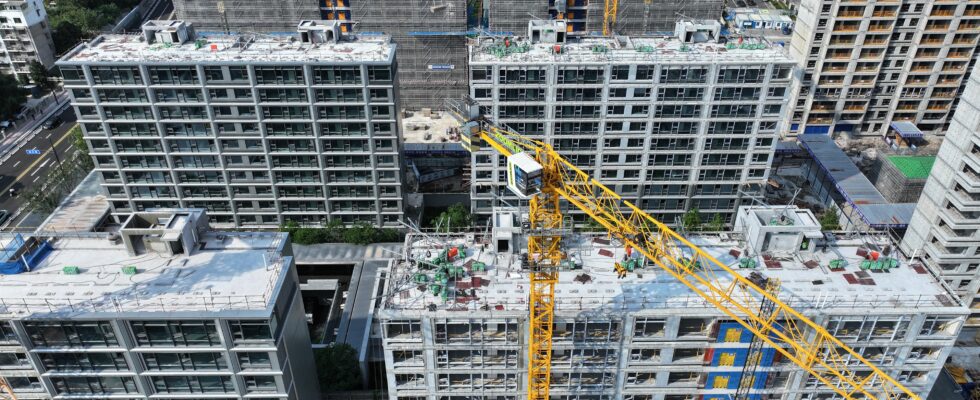The Chinese central bank announced on Tuesday, September 24, unprecedented measures to support consumption and real estate since the end of Covid, in the hope of reinvigorating a struggling activity in the world’s second-largest economy. More than a year and a half after the lifting of health restrictions that penalized the economy of the Asian giant, the post-Covid recovery that was so hoped for was brief and less robust than expected. The country remains penalized in particular by the real estate crisis, high unemployment among young people and sluggish household consumption, while the threat of deflation also weighs.
Chinese authorities are aiming for GDP growth of around 5% in 2024, a target considered very optimistic by many economists given the current difficulties. Beijing will reduce the required reserve ratio (RRR) of banks as well as its key rates, announced Pan Gongsheng, the governor of the Central Bank, at a press conference in Beijing. The RRR is a ratio that determines the share of deposits that banks are required to keep in their coffers. Its reduction should allow them to lend more to companies to support the real economy. “The required reserve ratio will be reduced by 0.5 percentage points very soon in order to provide financial markets with long-term liquidity of around 1,000 billion yuan” (128 billion euros), specified Pan Gongsheng.
China will also “lower interest rates on existing mortgages” in real estate, he announced, a measure that should “benefit 50 million households and 150 million people.” The drop in real estate rates should thus “help stimulate consumption and investment,” according to him.
“Probably not enough”
Chinese stock markets reacted positively to these measures: around 3:00 p.m. local time (9:00 a.m. French time), Hong Kong climbed 3.82%, Shanghai 4.15% and Shenzhen 3.95%. But optimism is more measured among economists. “It’s a step in the right direction but it will probably be insufficient,” summarizes analyst Julian Evans-Pritchard, from Capital Economics. “The measures announced today are far from being the mega-stimulus plan” advocated by many experts, also believes analyst Raymond Yeung from ANZ bank. “China seems to be caught in a trap in terms of liquidity” which is lacking in the economy, underlines Raymond Yeung. This requires a “more robust” fiscal policy to revive demand, according to him.
To attract more capital, the central bank announced on Tuesday a fund of 500 billion yuan (64 billion euros) to stabilize stock markets under pressure. Listed companies and insurance companies will be able to draw on it to buy shares on the markets, with the aim of strengthening investment and thus reinvigorating the economy.
Real estate in crisis
The housing and construction sector has long accounted for more than a quarter of the GDP of the world’s second-largest economy. But since 2020, it has suffered from Beijing’s tightening of credit conditions for property developers, which has pushed some, such as Evergrande and Country Garden, to the brink of bankruptcy, while falling prices are dissuading the Chinese from investing in property.
In recent months, the Chinese authorities have stepped up stimulus measures: in May, they reduced the down payment required for a first purchase and proposed that local authorities buy back unsold or undelivered homes. On Tuesday, a further reduction in the minimum down payment was announced and extended to the purchase of a second home.
The real estate crisis has deprived local governments of a major source of land revenue and their debt has now reached $5.6 trillion (€5.04 trillion), according to the central government, raising concerns about the stability of the Chinese economy. Beijing will “actively cooperate in resolving risks related to real estate and local government debt,” Li Yunze, director of the Central Administration of Financial Regulation, said Tuesday, speaking alongside the head of the central bank. The explosion of local government debt is one of the “risks” threatening the economy, Chinese authorities acknowledged in July.
